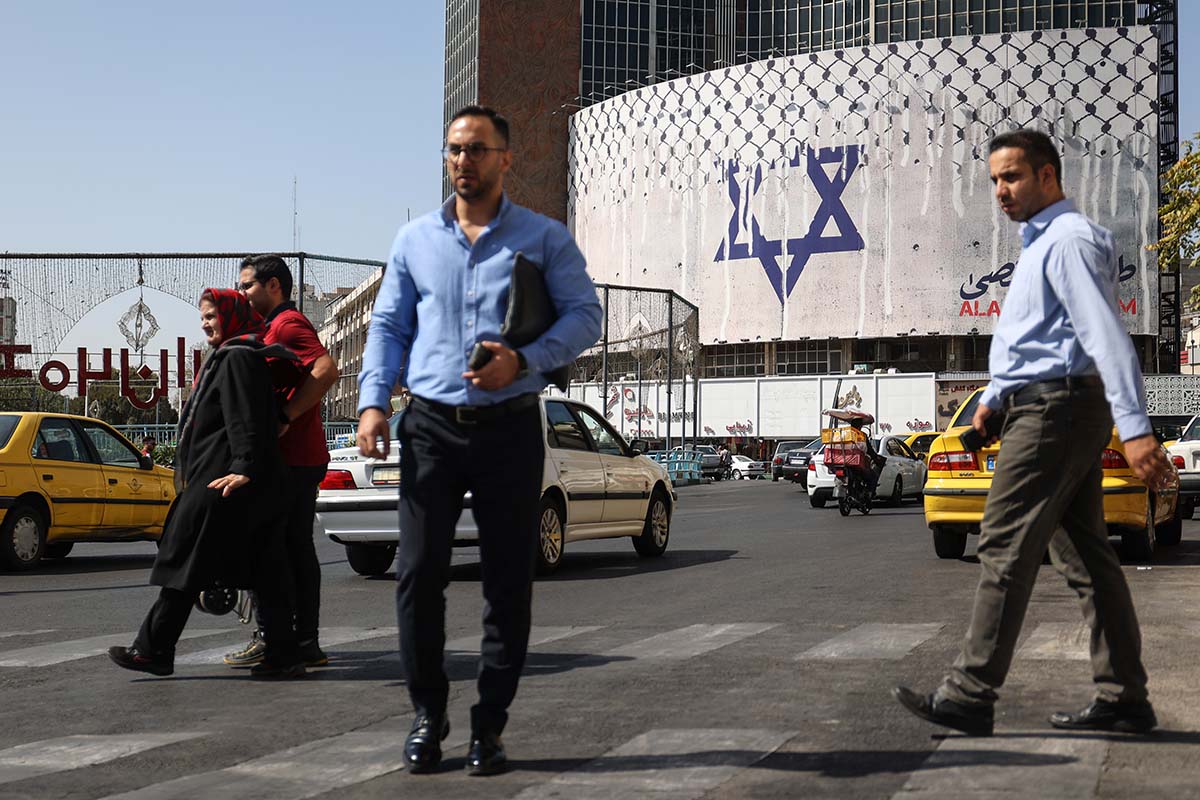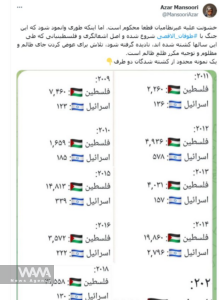Iranian reformists’ standpoint on Israel’s recent attacks
WANA (OCT 28) – The issue of Iran’s position on Zionist activities has long been a point of contention. This society has always been one of the serious opponents of the Zionist activities in this region.
Of course, even before the Islamic Revolution of 1979, when Iran was under the rule of an American-supported government, there was a deep-seated aversion to any form of normalization with Israel within Iranian society.
During this era, the United States pressured Iran to establish relations with Israel. However, the sentiment among the Iranian public remained so much anti-Israel that the then-Iranian monarch, Mohammad Reza Pahlavi, refrained from overtly cooperating with Israel due to the tangible public disgust for Israelis.
In the run-up to his eventual downfall and exile, King Mohammad Reza Pahlavi clarified his sentiments during an interview with foreign media. In this candid conversation, he challenged the extent of Jewish influence both in the West and East and said he thinks the Jewish lobby is way too powerful in America for the interest of Israel. “America is doing this because Israel controls many things: Newspapers, banks, media, finances..” His ideas left little room for doubt about his deep-seated animosity towards Zionists.
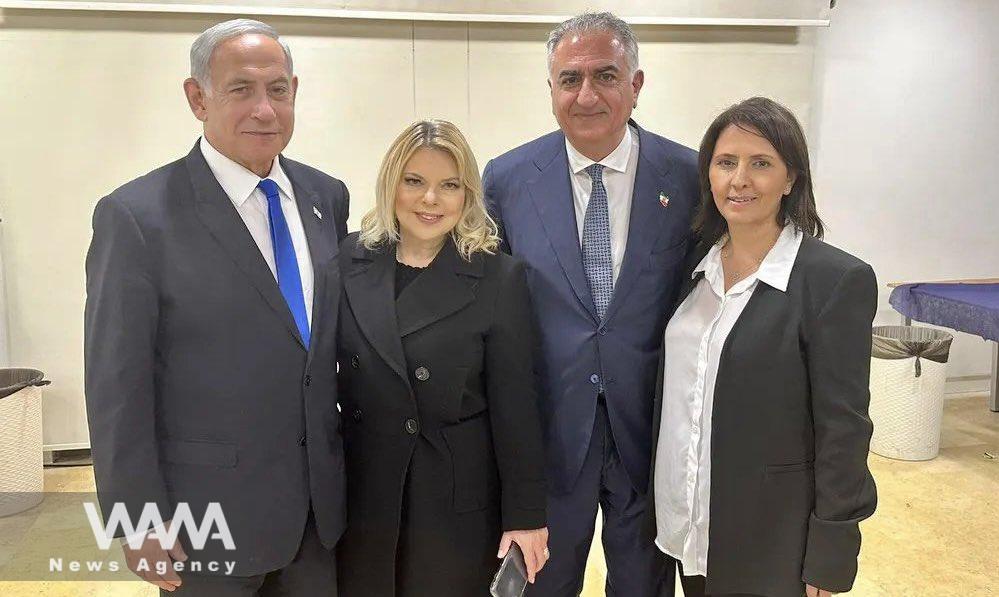
Reza Pahlavi son of Mohammadreza Pahlavi visits Israel. April 2023. Social media / WANA News Agency
The disagreement over Zionism is not limited to any particular faction or period within Iranian politics. Even the reformists in Iran, who are thought to be pro-Western, may agree with the West on various political issues, but they still hold the same standpoint as the conservative group on Zionism.
A few days ago, in an official statement, Iran’s reformist wing expressed their concern regarding the occupying regime’s actions and its disregard for international laws and that “The occupying regime has proven that it knows no other way than violating the rights of non-Zionist people.”
The majority of Iranian reformist leaders, moderate forces, and its bodies share a common perspective that condemns the actions of Zionists as violations of human rights and humanity. While Iranian dissidents may remain opposed to warfare, most acknowledge the legitimacy of Palestinians defending their rights, even if it involves armed conflict.
Mahmoud Sadeghi, a member of the 10th Parliament and the Reformist Front, reacted to this operation and wrote: “This conflict can only be resolved by withdrawing the occupiers from the occupied territories.”

As one delves deeper into the layers of the reformist movement in Iran, an even stronger anti-Israel sentiment becomes evident. It is important to note that this does not imply the complete approval of every action undertaken by Palestinian groups. Still, it is clear that, on average, those holding neutral or supportive views of Israeli actions represent a negligible minority within the reformist camp.
Azar Mansouri, the head of the Reform Front, wrote in an article published on her page on the X social network that “to attempt to change the place of the oppressor and the oppressed is repeating justifying the oppression of the oppressor.”
Ms. Mansouri, the head of the Reform Front, has mentioned the genocide of the Israelis by publishing a photo of the statistics in her account as well.
In addition to the reformist body, the voices of their leaders have been loud and clear; Iran’s reformist ex-president, Hasan Rouhani, released an official statement after the conflicts between Palestine and Israel started; in this firm statement, he declared: “Al-Aqsa storm operation was a response and reaction to years of killing the Palestinian people and the world’s indifference and an attempt to remove the blockade.”
Rouhani also expressed the hope that leaders of Islamic countries would consider taking prompt measures to halt the ongoing bombings affecting the Palestinian people and initiate a comprehensive endeavor to alleviate the blockade on the Gaza Strip.
Meanwhile, Khatami, another ex-reformist president of Iran, did not stay quiet in this matter; this reform leader once again reminded people of the long-lasting inhuman actions of Israel: “What has happened is the result of humiliation, oppression, and the cruelty that Israel has done to the Palestinian people over the years.”
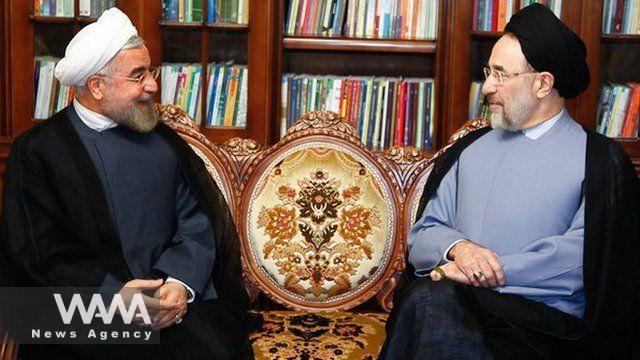
Former presidents of Iran. Mohammad Khatami (Right) & Hasan Rouhani (Left). Social Media / WANA News Agency
Additionally, Iran’s former foreign minister, Mohammad Javad Zarif, who happens to be another reformist element in Iran, wrote in his public account on X: “Israel’s Nazi-like statements and actions will not restore the criminal regime’s sense of invincibility. But they will provide a solid basis for war crimes indictments.”
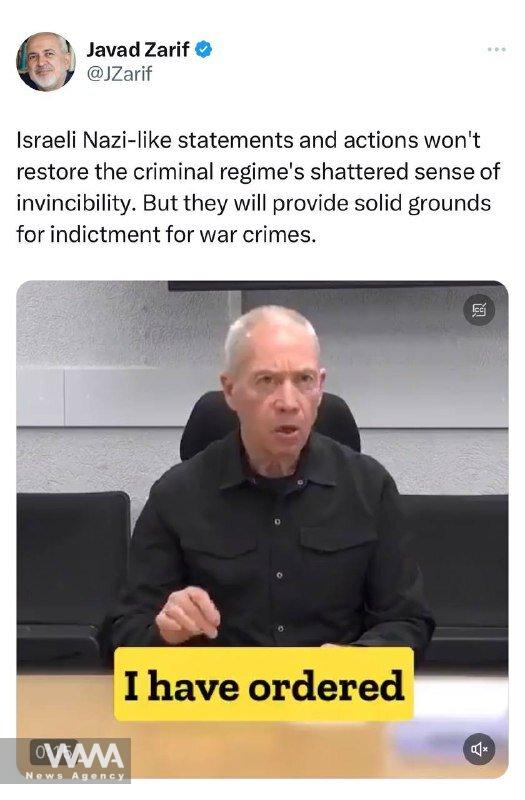
Since the attacks of the Zionist regime against the people of Palestine have intensified, Iranians have joined the global outcry in support of the Palestinians. Many Iranians have rallied behind Palestine, firmly opposing Zionist actions.
The recent news of Israel’s attack on a hospital in Gaza has ignited public outrage, prompting citizens in various cities to take to the streets, demanding international condemnation of Israel’s actions.
Mr. Ghafari, a Persian citizen, told WANA reporters in one of Tehran’s public anti-Israel rallies: “We ask people of the world to speak out as human beings and call for freedom and stand up against Israel’s infanticide and start the destruction of Israel.”
Many Iranians continue to watch for potential actions by IRGC commanders, including the use of specialized missiles, as they await measures to hold Israel accountable for its actions in the ongoing conflict.

Protesters burn the US flag during an anti-Israel protest in Tehran, Iran, October 18, 2023. Majid Asgaripour/WANA (West Asia News Agency)
“They should be punished ( because of Israel’s crimes). We used slogans to say that rockets against rockets are what we all want.” Said Miss Shahgholi, an Iranian woman to WANA, in one of the rallies.
Iranian society has always vehemently opposed Zionism, significantly impacting the country’s political landscape. This opposition is not limited to political alliances and highlights the intricate nature of Iran’s relationship with Israel. This deep-rooted belief has persisted over time and continues to shape the country’s perspective towards the state of Israel.
WANA / Writing by S, Khezri, R,Ganji contributed.
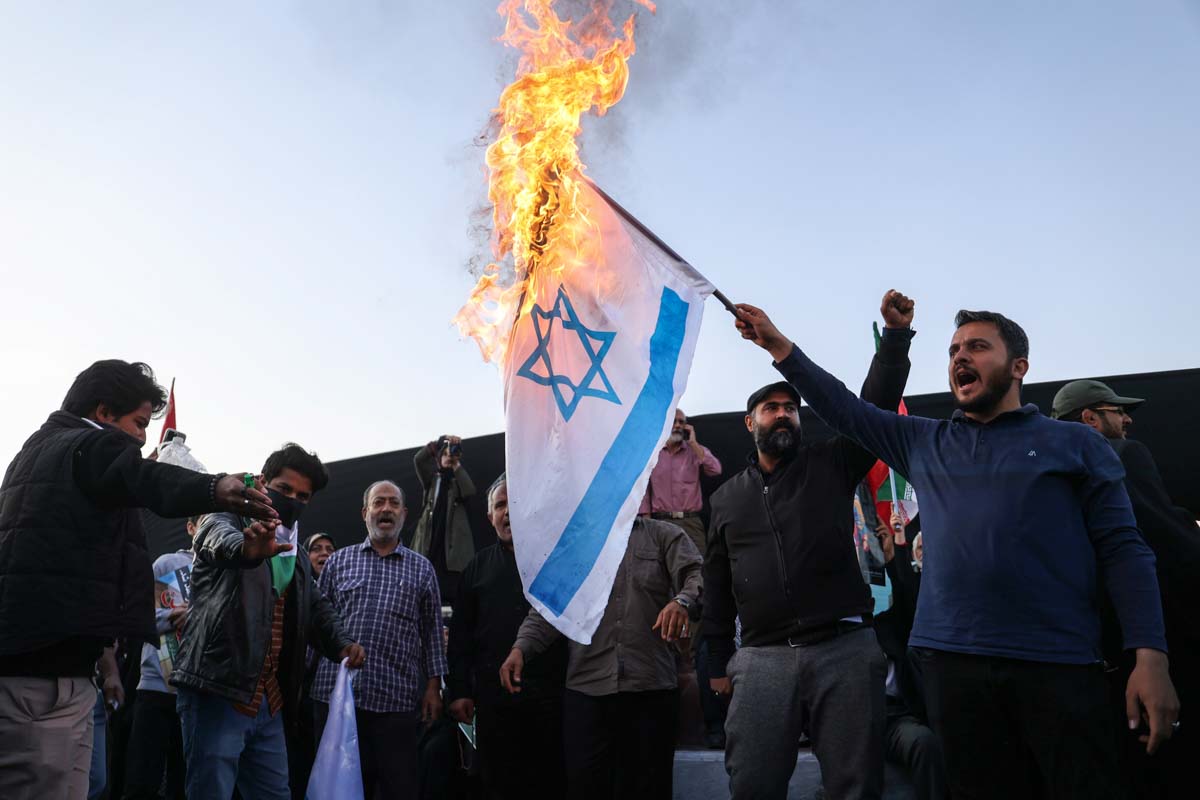
Iran is stubborn in its enmity with the Zionists
WANA (OCT 18) – Iran’s support for the Palestinians has a historical record. Although the rulers of the Pahlavi era, namely Reza Shah and his son Mohammad Reza Shah, had secret and sometimes open relations with Israel, the ordinary Iranian people at that time did not like the Zionists. They wanted their government to cut […]

